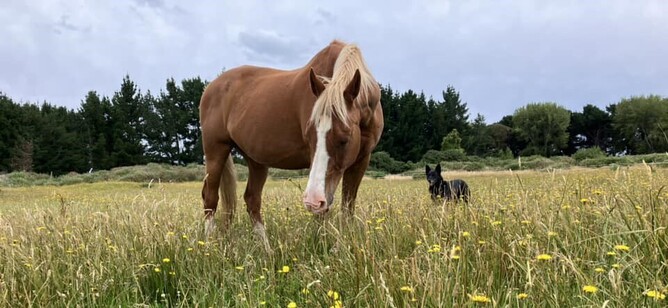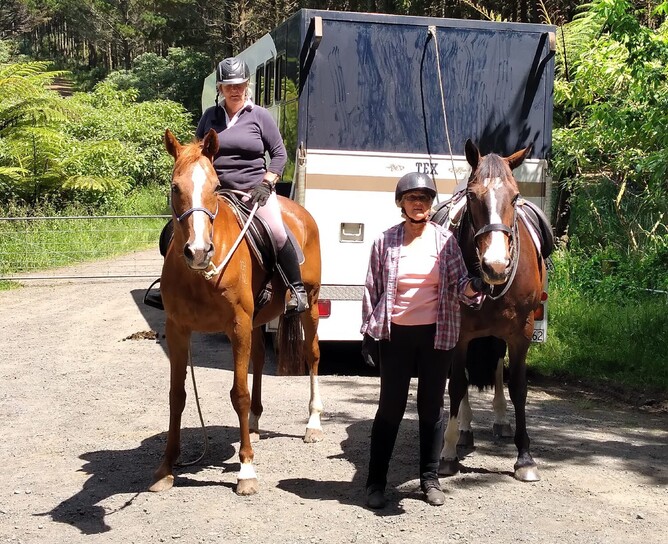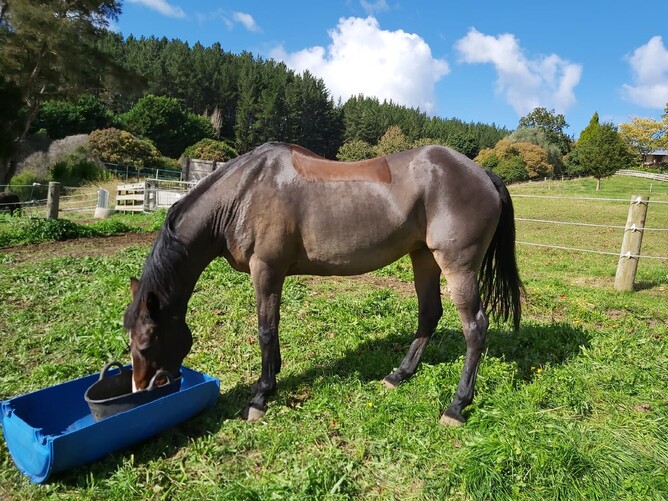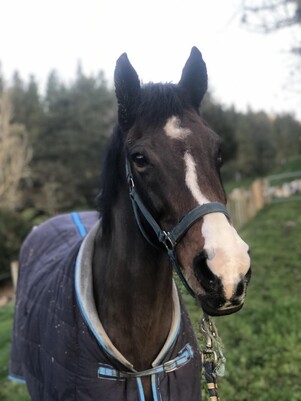Our horses become members of our family.
They help us chase our dreams, provide us with stress relief, teach our children responsibility and willingly offer to work for us. In return, all they ask is that we care for them, keep them fed, sheltered, healthy and happy.
As they get older, their health needs change, so once your beloved equine enters his mid-late teens, you may need to start thinking about how their bodies are changing. For example, they may:
lose muscle condition, through no longer being in work or age-related degeneration;
require a different diet;
develop age-related illnesses, such as arthritis or Cushing's syndrome (now called PPID - pituitary pars intermedia dysfunction).
Dental health
Just as with humans, dental health plays a role in your horse's overall wellbeing, especially as they age, and dental issues become more common. Good dental health enables your horse to properly chew its feed, which minimises wastage, maximises nutrient absorption, and reduces the likelihood of choking or colic.
To ensure your senior horse’s mouth is in good shape, an annual oral examination, under sedation, is very important. Your vet will look at the whole oral cavity, including the teeth, gingiva and the other soft tissues, to help identify issues such as sharp points, uneven wear, diastemata, or dental decay (caries). Any of these can cause discomfort or difficulty in chewing.
Physical examinations
Routine physical examinations for your older equine friend are also important to detect and address potential issues before they escalate.
As horses age, their bodies undergo various physical changes, including changes to the muscles in their topline. This can significantly impact the fit and comfort of their saddles, particularly if they are still engaged in regular work.
A saddle that once fit perfectly may now create pressure points or rubs, leading to discomfort or even pain for your ageing horse. Therefore, it's essential for horse owners to regularly assess the fit of their horse's saddle and adjust, or even change, the saddle, if required.
If your older horse is sound, keeping them in regular light work may be the best thing for them, as the exercise will help them maintain muscle strength and they will enjoy the stimulation from work and the interaction with you.
Age-appropriate diet
Providing a high-quality and age-appropriate diet is necessary to maintain the health of senior horses and to ensure their changing nutritional needs are met.
Quality forage should form the foundation of their diet, with appropriate hard feed and supplements, if needed, to meet specific nutritional requirements.
If your senior horse has age-related issues, such as dental problems or digestive sensitivities, they may benefit from specialised feeds designed to address these problems. Getting your vet to assess your horse’s condition and help with nutritional recommendations could be useful to ensure your older horse is getting the right feed and stays in good condition.
Vaccinations and parasite control
As horses age, their immune systems may weaken, making them more susceptible to infections. Regular vaccination against common equine diseases, tailored to the individual horse's lifestyle and geographical location, helps bolster their immunity and prevent the spread of illness.
Similarly, implementing a strategic deworming programme, guided by faecal egg counts and veterinary advice, helps control internal parasites that can compromise your horse's health, particularly as they age.
Parasite damage in the digestive tract can mean that less nutrients are absorbed, and a heavy parasite burden can also cause significant disease and illness.
Arthritis
Arthritis is another thing to watch out for in older horses.
Excess weight can increase joint pain and inflammation and place additional strain on joints. Therefore, maintaining an appropriate body condition through a balanced diet and regular exercise helps alleviate pressure on arthritic joints.
Light exercise, such as gentle walking or controlled turnout, promotes joint mobility and strengthens surrounding muscles without causing undue stress. Additionally, incorporating stretching exercises into your horse's routine can improve flexibility and range of motion, reducing stiffness and discomfort associated with arthritis.
Disease management
Cancer and PPID are prevalent among ageing horses, so it is important to keep an eye out for early warning signs to enable timely intervention and effective management of these conditions.
Symptoms can include:
Changes in coat quality,
Increased thirst and urination,
Weight loss/gain,
Lethargy,
Abnormal growths or swellings.
Regular veterinary examinations and proactive screening tests, such as blood work and imaging studies, can aid in early detection and prompt diagnosis. An appropriate treatment plan that is tailored to your horse's needs can then be implemented.
By remaining vigilant and attentive to any subtle changes in your senior horse's health and behaviour, you can ensure early detection and effective management of age-related issues such as arthritis, cancer and PPID.
Regular check ups with your vet
We all want to see our old friends happy and comfortable grazing in their paddocks. Regular check-ups and appropriate feed and exercise will maximise their quality of life, so we can keep enjoying the sight of those pricked ears welcoming us over the fence every day.




